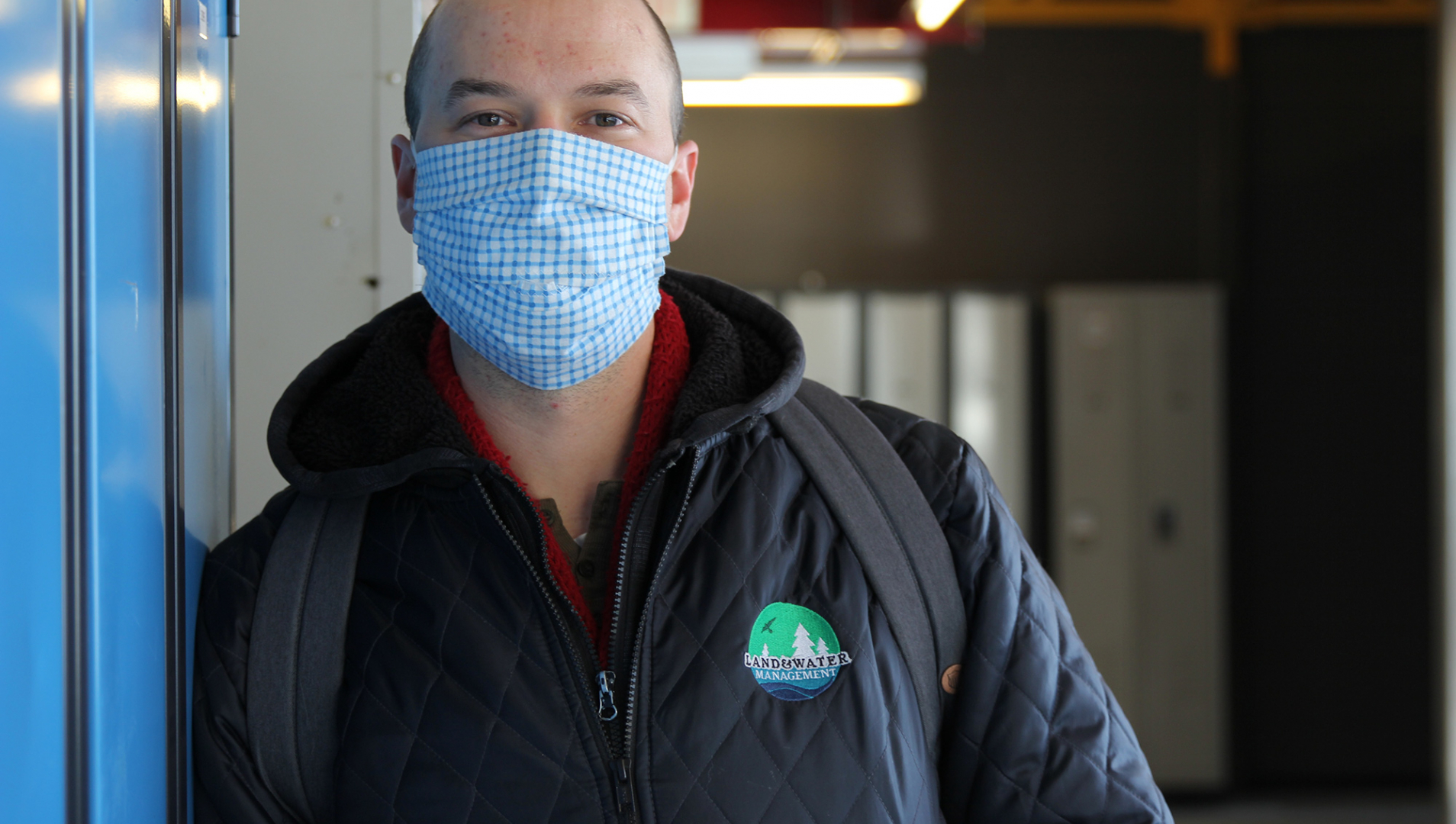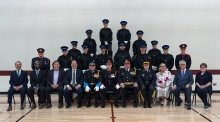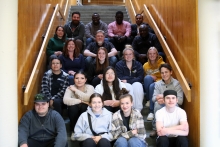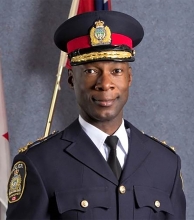Student Spotlight: Joe Dauphinais
November 20, 2020
I grew up just a little way north of Alexander. I've been coming into Brandon for school of some sort for most of my life. I took some time off after high school and then went to Brandon University where I received a four-year honors degree in History. I was thinking of either going into education or doing a master’s program but neither of the options seemed particularly appealing to me after I got some work experience after graduation. I ended up working at the school division for a while and then moved into a position with the City of Brandon, but eventually realized what I was doing just wasn't for me. I heard about the Land and Water Management program and it seemed right up my alley. I liked the idea of working outside and wanted to do something I enjoyed and had an interest in—which is helping out the environment. I applied to the program, and I've been attending Assiniboine for over a year. I'm currently in the second year of the program.
My wife is a teacher and she just recently received a permanent position in her dream job. I wasn't going to move somewhere far to attend school. Assiniboine really appealed to me because it was local. My wife is a great partner; she's been fantastic. When I was first thinking of going back to school, because I wasn't really happy with where I was at with my career at the time, she 100% supported me and encouraged me to do what makes me happy.
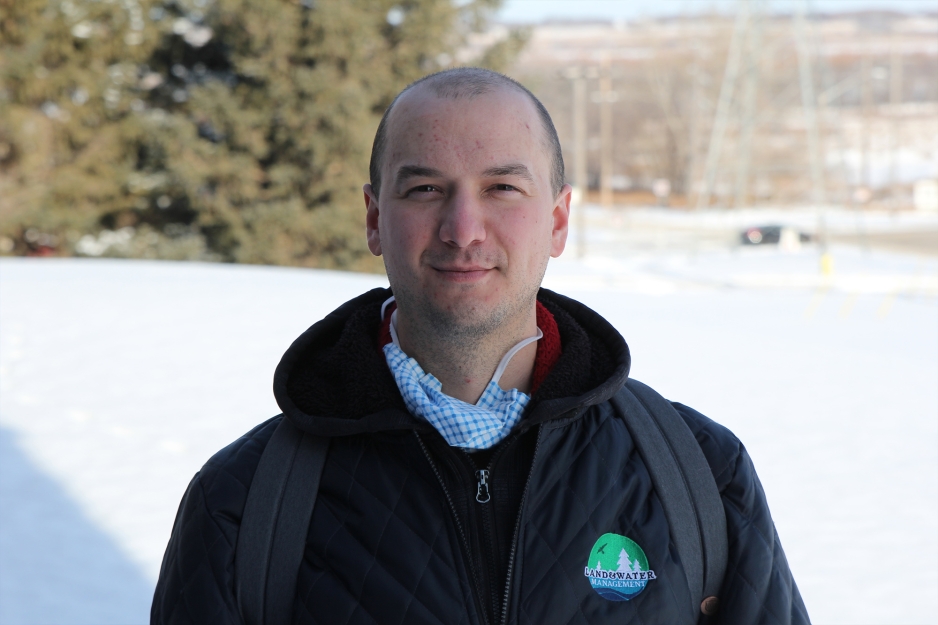
Everyone on campus has been great and welcoming. The first time I was on campus was for one of the program information sessions. I wasn't sure yet about everything, going back to school at 30 years old, or if it was even a good idea. The information session and learning more about the program itself and what to expect was what helped me make my decision—I pretty much applied right after it. The sessions were great and really helped make my decision easier. I recommend them to anyone thinking about attending Assiniboine.
It was also appealing to go somewhere with a specific school and programs related to agriculture and the environment. I grew up on an acreage; I wouldn't call it a farm, but we always had something going on related to agriculture. We're in crazy times, not only with the pandemic but with climate change as well. I want to help; it feels like it's weighing on me more than it should as an individual. I figured if I could do something for the rest of my life, I'd like to get some education or knowledge to help the current situation in some way. I didn't know initially what I wanted to apply for, but I wanted to expand my horizons. I heard about the Land and Water Management program at Assiniboine and it really appealed to me. The program aligned with a lot of the things I believed in as an individual. So I figured I had to try, so I gave it a shot and applied.
I had to kind of get back into the learning in a classroom mindset, it had been almost five years since I graduated from university. I had to get back into the right headspace and find that type of work ethic. It was just sort of getting ready to go back, amp myself up, and tell myself I was making the right decision to go back to school and doing the right thing for me. It was more about getting past the personal hang-ups, asking myself "Am I too old to do this?" or if it was a mistake to quit my job and go back to school. Once I got past that and started learning more and seeing the opportunities, any of those doubts I had quickly disappeared.
My instructors are really nice, extremely knowledgeable and offer a ton of support. Our Land and Water Management class is pretty small; I think around 20 people. So, we have a really great opportunity to actually get to know our instructors as people and individuals. We don't just show up and listen to their lectures; there's some practicality to it, which wasn't the case in some of my other classes in university. Some of the first-year classes had over a hundred students, and I don't think I ever spoke to any of my actual instructors. In Land and Water Management, it is a lot more intimate. I know my instructors and they know me. It's really helpful to be able to ask questions and help with concerns and feedback. It's really easy to approach them as a person—they're great.
Our small class has a pretty wide range of ages; some have recently just graduated high school, but some are my age or even a bit older. I was happy to see a mixture of people; I don’t feel too old or out of place. This second-year has definitely been different with the pandemic, but I’ve still been able to see my classmates a few times throughout the week. A lot of us are on the same page; we're all taking the program for many of the same reasons and share some sort of background or interest in environmental issues. We're coming in with a similar perspective. Everyone is really great, and we get along with each other really well. We're all comfortable with each other and offer support; it's easy to reach out to each other and be comfortable asking questions. The small class sizes definitely help with that.
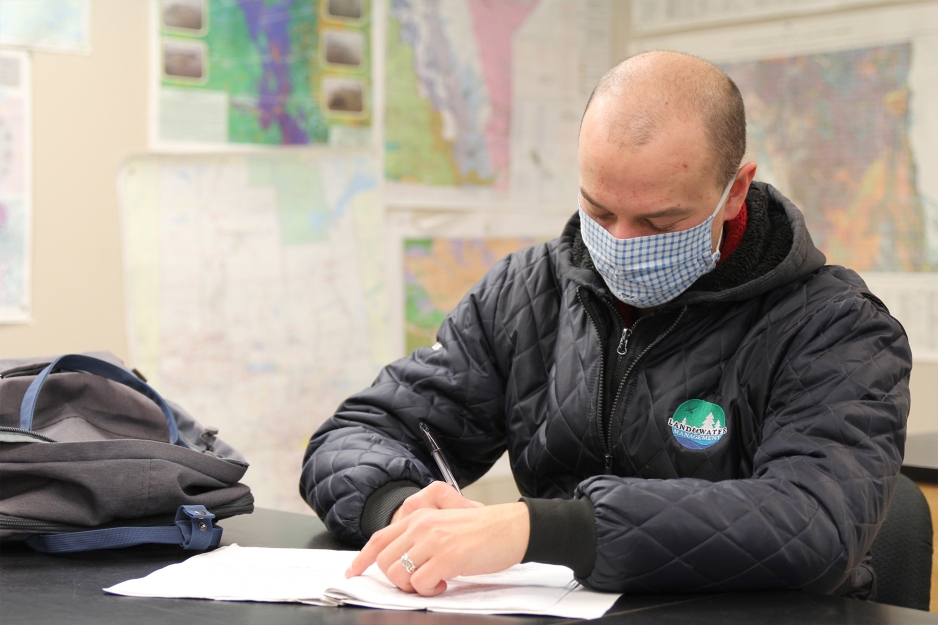
I ended up finding a great summer gig working for the province with the help of one of my instructors, Baljeet Singh. We finished the school year doing everything remotely because of the pandemic and like a lot of people, I was unemployed and not really doing a lot. I received an email from Baljeet with the details of the position with the province, and we forwarded my resume and I got the job. The position involved working in an agriculture resource development department on a soil survey crew. We went around taking soil samples so we could help map out different agricultural capabilities of the land. It involved working outside and walking several miles a day. It was super interesting and eye-opening; I didn't realize how involved the province is and how they are actually helping—not just the landowners but anyone that has any interest in the land and sustainability. They give a municipal breakdown of the data and release the survey to the public. I really enjoyed that practical side of science; it was interesting, and I enjoyed it even more than I thought I would. We were doing the surveys in the Souris and Glenwood area, so really close to home. It was an interesting job, and I enjoyed being outside. I'd consider a similar position if one ever came up.
With the program itself, at least last year, we were able to get out and do a lot of different fieldwork and gain a lot of experience during field labs and trips. On one field trip, we learned to take water discharge measurements. We got to spend an afternoon in chest waders in some of the shallow parts of the Little Saskatchewan River. We learned how to use equipment in a real setting. We also had a few field lab trips with the Agribusiness program and got to visit some really cool places like organic farms and different locations within the province where they are working on rehabilitating damaged land.
The program itself has been really interesting and involved a lot of memorable trips that stand out for me. I feel like this way of learning is really helpful. Instead of just sitting in a classroom and hearing about a place, we're actually able to visit and see the locations. It really sticks in your brain and is eye-opening. There are more opportunities and places to apply the knowledge gained than I was initially expecting when first coming into the program.
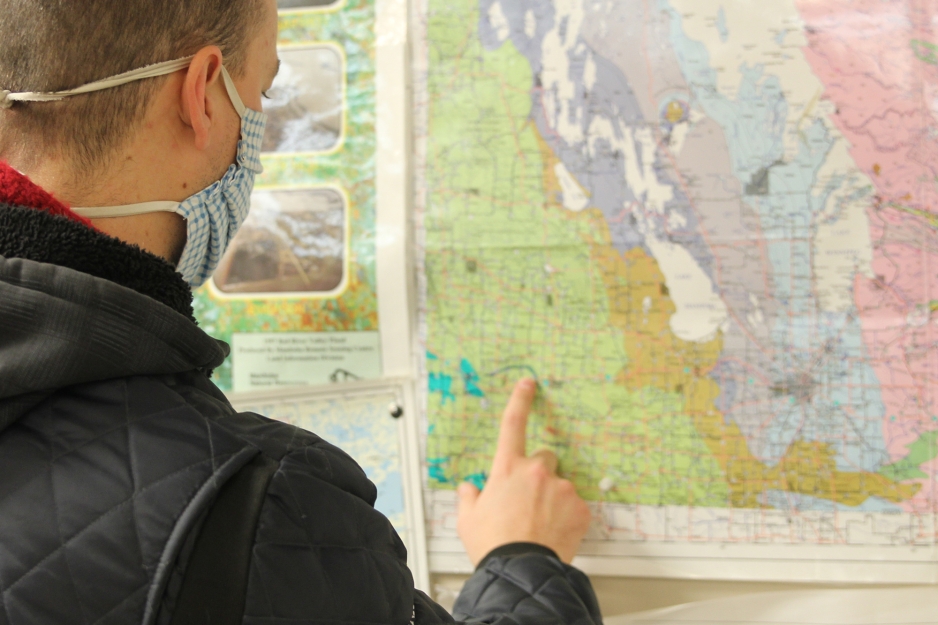
Part of our second year is a capstone project, which I get to work on with a few different classmates. We started planning it out in our first terms, and now we get to actually follow through and execute those plans. I can't wait to see how it turns out. Our project has us working with a rain garden guide for the Westman region; it's available for people online. The guide itself was based on Wisconsin, and a lot of the growing and plant recommendations aren't actually that accurate for our region. They suggest things that aren't native here, making it tough to grow and survive in our Westman climate. We're looking to update that plant list and make it a little more Westman specific, something to make it easier and more accurate for home and landowners.
I'm excited to see what happens next and where the program will take me after graduation. There seems to be a lot of opportunities and different avenues I can pursue when I'm done, probably some I'm not even aware of yet. A lot has changed since I first entered the program, and I'm excited to see what happens next.
For more information on the program visit the Land and Water Management program page.
See more student and staff spotlights by visiting assiniboine.net/spotlights.
